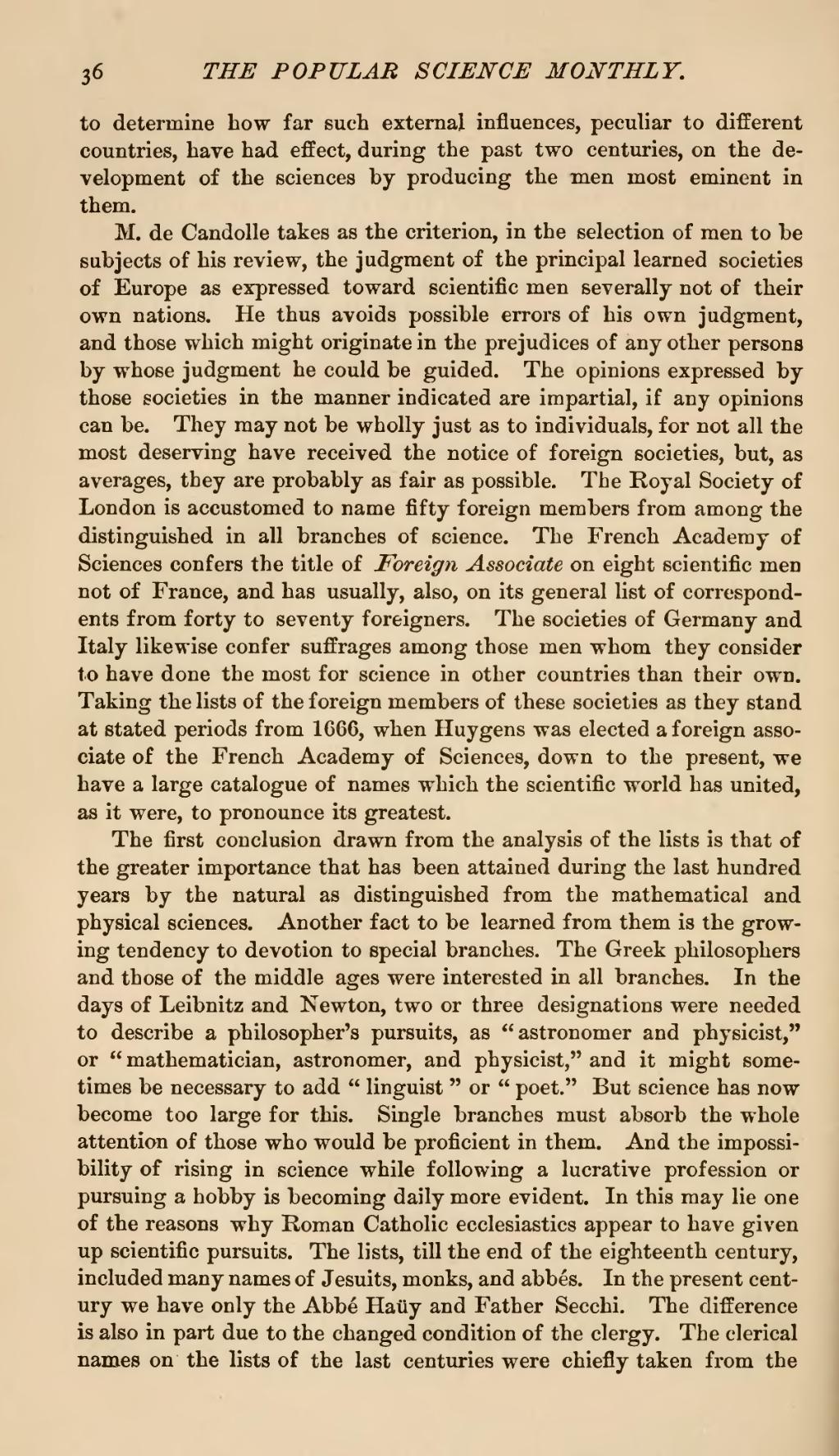to determine how far such external influences, peculiar to different countries, have had effect, during the past two centuries, on the development of the sciences by producing the men most eminent in them.
M. de Candolle takes as the criterion, in the selection of men to be subjects of his review, the judgment of the principal learned societies of Europe as expressed toward scientific men severally not of their own nations. He thus avoids possible errors of his own judgment, and those which might originate in the prejudices of any other persons by whose judgment he could be guided. The opinions expressed by those societies in the manner indicated are impartial, if any opinions can be. They may not be wholly just as to individuals, for not all the most deserving have received the notice of foreign societies, but, as averages, they are probably as fair as possible. The Royal Society of London is accustomed to name fifty foreign members from among the distinguished in all branches of science. The French Academy of Sciences confers the title of Foreign Associate on eight scientific men not of France, and has usually, also, on its general list of correspondents from forty to seventy foreigners. The societies of Germany and Italy likewise confer suffrages among those men whom they consider to have done the most for science in other countries than their own. Taking the lists of the foreign members of these societies as they stand at stated periods from 1666, when Huygens was elected a foreign associate of the French Academy of Sciences, down to the present, we have a large catalogue of names which the scientific world has united, as it were, to pronounce its greatest.
The first conclusion drawn from the analysis of the lists is that of the greater importance that has been attained during the last hundred years by the natural as distinguished from the mathematical and physical sciences. Another fact to be learned from them is the growing tendency to devotion to special branches. The Greek philosophers and those of the middle ages were interested in all branches. In the days of Leibnitz and Newton, two or three designations were needed to describe a philosopher's pursuits, as "astronomer and physicist," or "mathematician, astronomer, and physicist," and it might sometimes be necessary to add "linguist" or "poet." But science has now become too large for this. Single branches must absorb the whole attention of those who would be proficient in them. And the impossibility of rising in science while following a lucrative profession or pursuing a hobby is becoming daily more evident. In this may lie one of the reasons why Roman Catholic ecclesiastics appear to have given up scientific pursuits. The lists, till the end of the eighteenth century, included many names of Jesuits, monks, and abbés. In the present century we have only the Abbe Haüy and Father Secchi. The difference is also in part due to the changed condition of the clergy. The clerical names on the lists of the last centuries were chiefly taken from the
